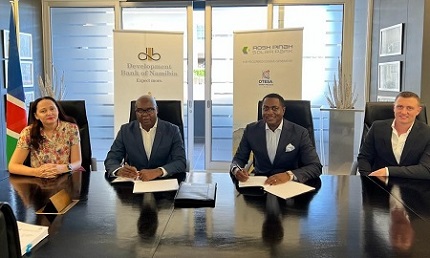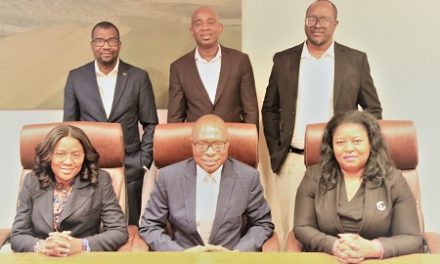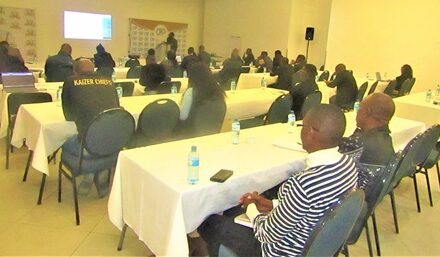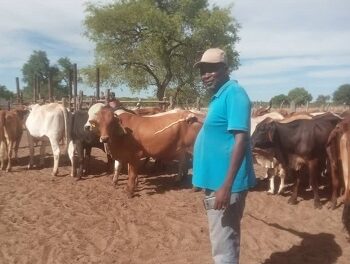
Development Bank of Namibia (DBN) and the Rosh Pinah Solar Park last Friday, 25 February 2022, signed an agreement to develop a solar park at Rosh Pinah.
With the latest agreement, DBN’s commitment to the field of renewable energy amounts to N$1.038 billion consisting of finance for 87.9 MW from 13 projects.
Once commissioned, the new power producer, Rosh Pinah Solar Park (RPSP) will generate 5,4 MW for the operational energy requirements of Rosh Pinah Zinc Corporation (RPZC). RPZC is in the process of expanding its operations and will require additional supplies of electricity.
The establishment of Rosh Pinah Solar Park is expected to reduce the cost of energy to run the mine, diversify its sources of energy and improve its sustainability.
RPSP is owned and will be managed by two Namibian entities: Otesa Energy Projects, the majority shareholder, and Emesco Energy (Namibia). Emesco developed the plant concept, while Otesa Energy Projects will construct the plant.
In a statement, director and shareholder of the solar park, Mr Elmo Kaiyamo, said the facility will supply 30% of RPZC’s power requirements over the 15-year duration of the power purchase agreement (PPA). This will reduce RPZC’s emissions of greenhouse gases by 6% annually at a company level. Emissions of CO2 produced by utility supplied power in the //Kharas Region will be reduced by 14,242 tons.
“Rosh Pinah Solar Park greatly appreciates the support of DBN and their responsiveness to the specific financing requirements of the project. He also stated that this majority Namibian-owned project supports the country’s objective of energy independence,” Kaiyamo said.
Finance for Rosh Pinah Solar Park is the second renewable energy project financed using the Bank’s Climate Adaptation Facility.
Commenting on the financial and developmental aspects, DBN CEO Martin Inkumbi said the Bank is committed to the development of renewable energy generation, and the benefits that it brings to economic activity and socio-economic wellbeing in Namibia.
“Particular development benefits of the finance include preserving sustainability of the Mining and Quarrying sector by reducing costs to a significant producer, making employment offered by RPZC more sustainable, as well as alleviating pressure on the electricity grid,” said Inkumbi.
Pressure on the grid is driven by growing demand from industry as well as expansion of the grid to reach previously unconnected households. As a result of demand outstripping installed generation capacity, Namibia is a net importer of electricity from South Africa and the Southern African Power Pool (SAPP). In December 2021, the country generated 89,054 Megawatt hours (MWh) but had to import 263,899 MWh.
“By financing renewable energy generated by Independent Power Producers (IPPs), DBN aims to reduce cashflows out of the country, increase the amount of locally generated electricity, reduce future costs associated with developing and maintaining cross-border transmission infrastructure as well as enhancing security of supply which may be complicated by threat of disruption of export operations,” said Inkumbi.
In the photo: At the official signing of the agreement: Cliftoline Nauses (DBN Investment Manager), Martin Inkumbi (DBN CEO), Elmo Kaiyamo (RPSP Director and Shareholder) and Nico Knight
(Emesco – Business Development).






